已確定的演講嘉賓

Amy Shen, Professor and Provost, Okinawa Institute of Science and Technology Graduate University (OIST)

Chwee Teck Lim, NUSS Chair Professor, National University of Singapore
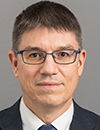
Daniel Citterio, Professor, Department of Applied Chemistry, Faculty of Science and Technology, Keio University
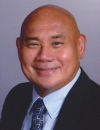
Danilo Tagle, Director, Office of Special Initiatives, National Center for Advancing Translational Sciences at the NIH (NCATS)

Dino Di Carlo, Armond and Elena Hairapetian Chair in Engineering and Medicine, Professor and Chair of Bioengineering, University of California Los Angeles

Han Wei Hou, Associate Professor, School of Mechanical and Aerospace Engineering, Nanyang Technological University Singapore
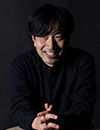
Hirofumi Shintaku, Professor, Institute for Life and Medical Sciences, Kyoto University

Ivan Rusyn, University Professor, Texas A&M University

Jin-Ming Lin, Professor, Department of Chemistry, Tsinghua University

Jing Chen, Founder & CEO, Hicomp Microtech

Levent Yobas, Professor, Hong Kong University of Science and Technology

Liang Zhao, Associate Professor, Beijing University of Technology

Martyn Boutelle, Professor of Biomedical Sensors Engineering, Imperial College London

Masatoshi Maeki, Associate Professor, Hokkaido University
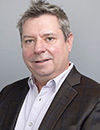
Noah Malmstadt, Professor, Mork Family Dept. of Chemical Engineering & Materials Science, University of Southern California -- Conference Chairperson
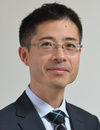
Ryuji Yokokawa, Professor, Department of Micro Engineering, Kyoto University
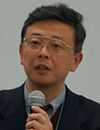
Seiichi Ishida, Guest Researcher, National Institute of Health Sciences, Professor, Sojo University

Tingrui Pan, Yangtze River Chair Professor, University of Science and Technology of China

Yoshinobu Baba, Professor, Nagoya University
Lab-on-a-Chip & Microfluidics Asia, Organoids & Organ-on-a-Chip Asia 2025 Conference
SelectBIO 將於 2025 年 10 月 6 日至 7 日在成田日航酒店(成田國際機場旁)舉辦晶片實驗室、微流體、類器官和器官晶片亞洲 2025 會議。
此年度盛會匯集了來自世界各地和日本各地的研究人員,並安排有學術演講、行業演講、來自世界各地的公司展廳以及廣泛的交流機會。
前往日本旅行非常愉快、方便、安全,如果您持有美國、歐洲或英國護照,您甚至不需要簽證(抵達日本時會蓋簽證章)。日航成田酒店可搭乘成田express(成田特快列車)到達東京,或利用新幹線到達日本各地,非常便利。成田日航飯店位置便利,距離成田國際機場僅約 5 至 10 分鐘的免費接駁車車程。
兩天的午餐都會為您提供日式便當盒,讓您享受精美呈現的日本料理。會議還將包括咖啡休息和晚間聯誼招待會,提供日本啤酒和清酒。
除了展覽廳外,還將設有海報展示單元。鼓勵與會者展示海報,以展示他們的研究成果並積極與其他會議與會者互動。
海報摘要
您還可以在參加會議的同時,發表海報以展示您的研究。但必須提交摘要以供審查。
海報提交截止日期:2025 年 9 月 15 日
會議議程主題
- 3D-Printing of Microfluidics Devices: Technologies, Methodologies and Tools
微流體設備的 3D 列印:技術、方法與工具 - BioEngineering Approaches for Building Microphysiological Systems/Organs-on-a-Chip
建構MPS(微生理系統)/OOAC(晶片器官)的生物工程方法 - Developments in Materials and Microfabrication Technologies
材料和微加工技術的發展 - Lab-on-a-Chip and Microfluidics for Life Science Research Applications
用於生命科學研究應用的LOAC(晶片實驗室)和微流體力學 - Lab-on-a-Chip and Microfluidics for Point-of-Care Diagnostic Testing Applications
用於PoC(即時診斷)測試應用的晶片實驗室和微流體技術 - Microfluidics for Studying Circulating Biomarkers
用於研究循環生物標記的微流體技術 - Microfluidics-LOAC Device Manufacturing: Technologies and Companies Showcase
微流體 - LOAC 設備製造:技術與公司展示 - Organ-on-a-Chip Applications for Drug Discovery and Toxicity Screening
器官晶片在藥物研發和毒性篩選上的應用 - Organ-on-a-Chip/Body-on-a-Chip Assembly using Microfluidics
使用微流體技術的 OOAC(器官晶片)/BOAC(身體晶片)組裝 - Tools and Approaches Studying Organoids, Spheroids, Cancer Organoids -- A Continuum from 3D-Culture to Organs-on-Chips
研究類器官、球體、癌症類器官的工具和方法—從 3D 培養到器官晶片的連續過程 - Lipid Nanoparticles (LNPs)
LNP(脂質奈米顆粒)
贊助和參展機會
更多詳情請洽詢環球資訊有限公司Global Information Co., Ltd.。
Amy Shen, Professor and Provost, Okinawa Institute of Science and Technology Graduate University (OIST)

Amy Shen Biographical Sketch
Amy Shen is the Provost and a Professor at OIST in Japan, where she has led the Micro/Bio/Nanofluidics Unit since 2014. Before joining OIST, she was a faculty member in Mechanical Engineering at the University of Washington, USA. Her research focuses on microfluidics, rheology, and lab-on-a-chip technologies at the bio/nano interface, with broad applications in biotechnology. Amy is a Fellow of the American Physical Society, the Royal Society of Chemistry, and the Society of Rheology. She has received numerous accolades, including the NSF CAREER Award, the Ralph E. Powe Junior Faculty Enhancement Award, and was a Fulbright Scholar in 2013. She serves as an Associate Editor for Soft Matter and is on the editorial advisory boards of ACS Sensors, Journal of Rheology, and Physics of Fluids. Notably, she delivered the 2019 Bergveld Lecture at the University of Twente in the Netherlands and the 2025 FlOW lecture at KTH Royal Institute of Technology in Sweden.
Chwee Teck Lim, NUSS Chair Professor, National University of Singapore

Chwee Teck Lim Biographical Sketch
Professor Chwee Teck LIM is the NUSS Chair Professor and Director of the Institute for Health Innovation and Technology at the National University of Singapore. He has coauthored over 500 journal publications and cofounded six startups with one public listed in 2018. Prof Lim is an elected Fellow of nine academies and organizations including the Royal Society UK, US National Academy of Inventors, IUPESM, AIMBE, IAMBE, Singapore National Academy of Science and Academy of Engineering Singapore. He has garnered numerous research awards including Nature Lifetime Achievement Award for Mentoring in Science, Highly Cited Researcher, Asia’s Most Influential Scientist Award, Wall Street Journal Asian Innovation Award (Gold) and the President's Technology Award.
Daniel Citterio, Professor, Department of Applied Chemistry, Faculty of Science and Technology, Keio University

Daniel Citterio Biographical Sketch
Daniel Citterio received his Doctoral degree in Natural Sciences from the Swiss Federal Institute of Technology (ETH) in Zurich (Switzerland) in 1998. From 1998-2002, he was a postdoctoral researcher at Keio University with Prof. Koji Suzuki. Upon return to Switzerland, he worked as a researcher at ETH, before joining Ciba Specialty Chemicals Inc.. In 2006, he moved back to Keio University, where he became a tenured Associate Professor in 2009 and Professor in 2014. In 2016, he has been admitted as a Fellow of the Royal Society of Chemistry (RSC). He serves as a co-Editor-in-Chief of the journal Sensors and Actuators B: Chemical, as well as on the Editorial Advisory Board of ACS Sensors. In 2022, he has been awarded the Chemical Society of Japan Award for Creative Work. His research is focusing on the development of chemical sensors and biosensors. More recently, his research team is strongly engaged in the development of microfluidic paper-based analytical devices (µPADs) for low-cost point-of-need applications.
Danilo Tagle, Director, Office of Special Initiatives, National Center for Advancing Translational Sciences at the NIH (NCATS)

Danilo Tagle Biographical Sketch
Dan Tagle is Director of the Office of Special Initiatives at NCATS where he many coordinates efforts towards development of disruptive technologies in translational research. He obtained his Ph.D. in Molecular Biology and Genetics from Wayne State University School of Medicine. He was an NIH National Research Service Award postdoctoral fellow in Human Genetics at the University of Michigan. He has served on numerous committees, advisory boards, and editorial boards. He has authored many scientific publications and has garnered numerous awards, including more recently the Roscoe O. Brady Award for Innovation and Accomplishment, and the Henry J. Heimlich Award for Innovative Medicine.
Dino Di Carlo, Armond and Elena Hairapetian Chair in Engineering and Medicine, Professor and Chair of Bioengineering, University of California Los Angeles

Dino Di Carlo Biographical Sketch
Dino Di Carlo received his B.S. in Bioengineering from the University of California, Berkeley in 2002 and received a Ph.D. in Bioengineering from the University of California, Berkeley and San Francisco in 2006. From 2006-2008 he conducted postdoctoral studies in the Center for Engineering in Medicine at Harvard Medical School. He has been on the faculty in the Department of Bioengineering at UCLA since 2008 and now as Professor of Bioengineering and Mechanical Engineering serves as the Chair of the Department and as the director of the Cancer Nanotechnology Program in the Jonsson Comprehensive Cancer Center. His research pioneered the use of inertial fluid dynamic effects for the control, separation, and analysis of cells in microfluidic devices. His recent work extends into numerous other fields of biomedicine and biotechnology including directed evolution, cell analysis for rapid diagnostics, new amplified molecular assays, next generation biomaterials, and phenotypic drug screening. He has also been a leader in technology entrepreneurship: He co-founded and currently serves on the board of directors of five companies that are commercializing UCLA intellectual property developed in his lab (CytoVale, Vortex Biosciences, Tempo Therapeutics, Forcyte Biotechnologies and Ferrologix). Among other honors he received the Presidential Early Career Award for Scientists and Engineers (PECASE) and was elected a Fellow of the American Institute for Medical and Biological Engineering in 2016, was elected a Fellow of the Royal Society of Chemistry (FRSC) in 2014, was awarded the National Science Foundation (NSF) Faculty Early Career Development award and the U.S. Office of Naval Research (ONR) Young Investigator Award, the Packard Fellowship and Defense Advanced Research Projects Agency (DARPA) Young Faculty Award, and received the National Institutes of Health (NIH) Director’s New Innovator Award and Coulter Translational Research Award.
Han Wei Hou, Associate Professor, School of Mechanical and Aerospace Engineering, Nanyang Technological University Singapore

Han Wei Hou Biographical Sketch
Dr. Han Wei Hou is an Associate Professor at the School of Mechanical and Aerospace Engineering (MAE), and Lee Kong Chian School of Medicine (LKCMedicine) at Nanyang Technological University Singapore (NTU). He is also an Adjunct Senior Research Scientist at Tan Tock Seng Hospital (TTSH), and currently serves as the Assistant Chair (Students) at MAE. Dr. Hou received his BEng (First Class Hons) and PhD degree in Biomedical Engineering at the National University of Singapore in 2008 and 2012, respectively. Upon graduation, he did his postdoctoral training at Massachusetts Institute of Technology (USA), and subsequently joined LKCMedicine as the inaugural LKCMedicine Postdoctoral Fellow in 2014. He started his research group at NTU (BioMicroSystems Laboratory, www.hwhoulab.com) in 2018 and his research interests include microfluidics blood diagnostics, organ-on-chips, and cell-based biomanufacturing. He has authored over 60 peer-reviewed journal publications and filed 15 patents/patent applications. His recent research awards and accolades include World's Top 2% Scientists (By Stanford University) (2023, 2024), International Academy of Medical and Biological Engineering (IAMBE) Early Career Award (2022), NTU College of Engineering Research – Young Faculty Special Mention (2022), and International Society for Advancement of Cytometry (ISAC) Innovators (2021).
Hirofumi Shintaku, Professor, Institute for Life and Medical Sciences, Kyoto University

Hirofumi Shintaku Biographical Sketch
Hirofumi Shintaku is Professor at the Institute for Life and Medical Sciences, Kyoto University, and RIKEN Hakubi Team Leader. He has received numerous awards, including the Young Engineers Award from the Japan Society of Mechanical Engineers, the highest honor for young mechanical engineers. His current research focuses on technology development for single-cell biology leveraging electrokinetics in micro and nanoscale and integrating phenotyping and single-cell omics.
Ivan Rusyn, University Professor, Texas A&M University

Ivan Rusyn Biographical Sketch
Dr. Ivan Rusyn is a University Professor in the Department of Veterinary Physiology and Pharmacology at Texas A&M University. He directs the Texas A&M Superfund Research Center. With over 350 peer-reviewed publications cited more than 38,000 times (h-index=89), his research focuses on the health effects of chemical agents. Dr. Rusyn has chaired and served on committees for the US National Academies and WHO/IARC working groups and advises the Texas Department of Public Health. He holds a medical degree from Ukrainian State Medical University (1994) and a Ph.D. in toxicology from the University of North Carolina (2000), with postdoctoral work at MIT and Heinrich-Heine University (Dusseldorf, Germany).
Jin-Ming Lin, Professor, Department of Chemistry, Tsinghua University

Jin-Ming Lin Biographical Sketch
Dr. Jin-Ming Lin is a professor at the Department of Chemistry, Tsinghua University. From 1992 to 2002, he studied and worked at Showa University and Tokyo Metropolitan University, Japan. He received his Ph.D from Tokyo Metropolitan University in 1997. In 2001, he was selected into the "Hundred Talents Program" of the Chinese Academy of Sciences and received funding from the National Science Foundation for Outstanding Young Scholars, and in the same year, he was appointed as the professor at the Research Center for Eco-Environmental Sciences, Chinese Academy of Sciences. In 2004, he moved to Tsinghua University as a full professor at the department of chemistry. In 2008, he was selected as CheungKung Scholar Distinguished Professor of the Ministry of Education, China. He is a fellow of the Chinese Chemical Society and a fellow of the Royal Society of Chemistry. His main research interesting: 1) Microfluidic chip combined with mass spectrometry for cell analysis; 2) Research on rapid detection methods of foodborne pathogenic bacteria; 3) Research on the preparation method of air negative ions and its mechanism on promoting health. He has published more than 500 research papers, applied for and authorized more than 50 invention patents, and won more than 30 academic awards. He is currently the president of the Microfluidic System Branch of the Chinese Biophysical Society, the deputy director of the Committee of Analytical Chemistry of the Chinese Chemical Society, the vice chairman of the Micro-nano Fluidics Technology Branch in Chinese Micro and Nanotechnology Society, the executive director of the Chinese Association of Analysis and Testing, the Chief in Editor of Chemosensors, contributing editor of Trends in Analytical Chemistry, and Associate Editors of J. Pharm. Anal., Chinese Chemical Letters.
Jing Chen, Founder & CEO, Hicomp Microtech

Jing Chen Biographical Sketch
Dr. Jing Chen has amassed 28 years of expertise in Microfluidics, MEMS, and Manufacturing Engineering. He earned his PhD from Tsinghua University, furthered his research at the University of Michigan, and served as a tenured professor at Peking University for 16 years. In 2014, Dr. Chen founded HiComp, which specializes in microfluidic and lab-on-chip products for various industries. He has authored over 180 papers, 70 patents, and 6 books, making significant contributions to the field.
Levent Yobas, Professor, Department of Electronic and Computer Engineering, Department of Chemical and Biological Engineering, Hong Kong University of Science and Technology

Levent Yobas Biographical Sketch
Dr Levent Yobas received his BSc degree in electrical engineering from Hacettepe University, Turkey, MSc and PhD degrees both in biomedical engineering from Case Western Reserve University, USA. From 2002-2010, he was with the Institute of Microelectronics (IME) under the Agency for Science, Technology, and Research (A*STAR) of Singapore. He held adjunct faculty positions with Bioengineering Division at National University of Singapore (NUS) and the School of Electrical & Electronic Engineering at Nanyang Technological University (NTU). He joined the Department of Electronic and Computer Engineering at the Hong Kong University of Science and Technology as Assistant Professor in 2010 and was promoted to Associate Professor in 2015 and Professor in 2022. His research is mainly focused on silicon-based micro/nanofabrication technologies for life sciences, particularly lab-on-a-chip microfluidics for drug discovery and point-of-care diagnostic applications.
Liang Zhao, Associate Professor, Beijing University of Technology

Liang Zhao Biographical Sketch
Dr. Zhao currently serves as an Associate Professor in the Department of Chemistry at Beijing University of Technology. Prior to this position, he was worked for the University of Science and Technology Beijing. He earned his PhD from Nanjing University and completed his postdoctoral research at Peking University before serving as a visiting scholar at the University of California, Berkeley (2014-2015). Dr. Zhao's research focuses primarily on developing advanced microfluidic devices that replicate physiological microenvironments. These innovative platforms enable precise spatial and temporal control of cells, spheroids, and organoids for enhanced in vitro studies. Additionally, his work includes the development and integration of novel 3D-printed microfluidic tools for biomedical applications.
Martyn Boutelle, Professor of Biomedical Sensors Engineering, Imperial College London

Martyn Boutelle Biographical Sketch
Martyn Boutelle is Professor of Biomedical Sensors Engineering in the Department of Bioengineering, Imperial College London, and Associate Provost for Estates Planning for Imperial College. His research group is multidisciplinary comprising bioengineers, scientists, and clinicians. He develops novel analytical science methods using microfluidics, electrochemical sensors / biosensors, and wireless electronics to make portable (sometimes wearable) monitoring devices for use as point of care devices – typically giving continuous real -time displays. He then uses these in a program of clinical science research focusing on the neonatal monitoring, acute traumatic brain injury, pesticide exposure monitoring. Martyn is past president of the International Society for Monitoring Molecules in Neuroscience, and a founder of the COSBID organization for studying acute human brain injury. He published > 200 papers, chapters and patents. He obtained a BSc and PhD in Chemistry from Imperial College and worked as an EP Abraham Research Fellow in the University of Oxford.
Masatoshi Maeki, Associate Professor, Hokkaido University

Masatoshi Maeki Biographical Sketch
Masatoshi Maeki is an Associate Professor in the Division of Applied Chemistry at the Faculty of Engineering, Hokkaido University. He received his Ph.D. degree in 2014 from Kyushu University. After graduation, he worked as a Research Fellow of the Japan Society for the Promotion of Science (JSPS) at Hokkaido University. He joined the Faculty of Engineering at Hokkaido University as an Assistant Professor in 2015 and was promoted to Associate Professor in 2021. His research focuses on the development of microfluidic devices for applications in drug delivery systems and biomolecular analysis. He has received several awards, including the Minister of Education, Culture, Sports, Science and Technology (MEXT) Prize for Young Scientists in the field of science and technology in 2024. He also received the Hokkaido Science and Technology Encouragement Award in 2023, the Japan Society for Analytical Chemistry Award for Young Researcher’s in 2016, and the Young Innovator Award on Chemistry and Micro-Nano Systems (CHEMINAS Young Innovator Award) in 2015.
Noah Malmstadt, Professor, Mork Family Dept. of Chemical Engineering & Materials Science, University of Southern California

Noah Malmstadt Biographical Sketch
Noah Malmstadt is Professor at the University of Southern California. He received a BS in Chemical Engineering from Caltech and a PhD in Bioengineering from the University of Washington. Following postdoctoral work at UCLA, he joined the Mork Family Department of Chemical Engineering and Materials Science at USC in 2007. Malmstadt is the recipient of a 2012 Office of Naval Research Young Investigator award. His research focuses on microfluidic strategies to facilitate material fabrication and biophysical analysis. He has pioneered the integration of ionic liquids as solvents in droplet microreactors and the application of microfluidic systems to synthesizing biomimetic cell membranes. Microfluidic analytical techniques he has developed include methods for measuring the permeability of cell membranes to druglike molecules and techniques for measuring ionic currents through membrane proteins.
Ryuji Yokokawa, Professor, Department of Micro Engineering, Kyoto University

Ryuji Yokokawa Biographical Sketch
Ryuji Yokokawa is currently a Professor at Department of Micro Engineering, Kyoto University, Japan, and a Visiting Researcher at RIKEN Center for Biosystems Dynamics Research (BDR), Japan. Before the current position, he was an Associate Professor Department of Micro Engineering, Kyoto University (2011–2019), an Assistant Professor at Department of Micro Engineering, Kyoto University (2009–2011), and a Lecturer at Department of Micro System Technology, Ritsumeikan University (2005–2009). He was a project researcher of Precursory Research for Embryonic Science and Technology, Japan Science and Technology Agency (PRESTO, JST) (2008–2014), and an adjacent faculty of World Premier International Research Center (WPI) Initiative, Integrated Cell-Material Sciences (iCeMS), Kyoto University (2010–2012).
He has authored or co-authored 82 peer-reviewed journal and 158 conference papers, 1 book chapter, and has 7 patents issued or pending. He has served as a technical or organizing committee member in many international conferences including IEEE NEMS, MEMS, Sensors and NANOMED. He has received 21 academic awards such as The Young Scientists’ Prize, The Commendation for Science and Technology by the Minister of Education, Culture, Sports, Science and Technology in 2016.
Seiichi Ishida, Guest Researcher, National Institute of Health Sciences, Professor, Sojo University

Seiichi Ishida Biographical Sketch
Seiichi Ishida has been Professor of Division of Applied Life Science, Graduate School of Engineering, Sojo University, and Guest Researcher of Biological Safety Research Centre at National Institute of Health Sciences since 2020. He received his PhD in Pharmaceutical Science from the University of Tokyo, Japan in 1993, and conducted postdoctoral studies at The Cancer Institute (Tokyo) and at Howard Hughes Medical Institute at Duke University Medical Centre. He used to be Senior Researcher (2000-2007) and Section Chief (2007-2020) of Division of Pharmacology at National Institute of Health Sciences. His research focuses primarily on the development of in vitro cell assay platform for the evaluation of drug metabolism and drug induced liver injury and their application to the regulatory science field.
Tingrui Pan, Yangtze River Chair Professor, University of Science and Technology of China

Tingrui Pan Biographical Sketch
Professor Pan Tingrui is a Fellow of the American Institute for Medical and Biological Engineering (AIMBE) and the Royal Society of Chemistry (RSC). He is currently a Yangtze River Chair Professor of the University of Science and Technology of China and directs the Institute for Innovative Medical Devices (iMED). Before joining USTC, Professor Pan was a tenured Full Professor at UC Davis, where he initiated Global Research Experience in Advanced Technologies (GREAT) Program and directed Center for Nano and Micro-Manufacturing (CNM²). He is currently an Associate Editor of Annals of Biomedical Engineering (TBME) and Journal of Medical Devices (JMD) and serves on the editorial board of Bioengineering and Journal of Chinese Medicine. His research interests span a wide range of bioengineering frontiers, including iontronic sensing, tactile intelligence, medical wearables, microfluidic interfaces and laboratory intelligence. His group has authored over 100 referenced publications on high impact journals and has been granted more than 20 international patents. Notably, Professor Pan is well known for his invention of the world-first flexible iontronic sensor (FITS), as the latest generation of tactile sensing technology, which has been successfully translated from a laboratory prototype to a series of enabling industrial and medical products. For his contribution to both academic innovation and technology translation, Professor Pan has received numerous international awards and domestic recognitions, including the National Science Foundation (NSF) Early Career Development (CAREER) Award and Emerging Frontiers in Research and Innovation (EFRI) Award, Xerox Award, CES Innovation Award, UC Davis Outstanding Service Award, Outstanding Engineering Faculty Award, and the First Prize of China Innovation and Entrepreneurship Competition.
Yoshinobu Baba, Professor, Nagoya University

Yoshinobu Baba Biographical Sketch
Dr. Yoshinobu Baba is Professor of Department of Applied Chemistry, Graduate School of Engineering, Nagoya University. He is also a Director of FIRST Research Center for Innovative Nanobiodevices, Nagoya University and a Director of Synchrotron Radiation Research Center, Nagoya University. He is an Associate Editor of Anal. Chem. of American Chemical Society and serving to over 20 scientific journals, including Nanoscale of Royal Society of Chemistry and Biomicrofluidics of American Institute of Physics, as an editorial/advisory board member. He is a co-initiator for the world largest Nanotech/Nanobio International Meeting and Exhibition in Japan and International Academy of Nanomedicine. He is a general chair of numerous international meetings (microTAS, MSB, NanoBioEXPO, ISMM). He has been admitted as a Fellow of the Royal Society of Chemistry and received over 113 awards for his contributions in nanobiotechnology: MERCK Award in 2004, award from the Applied Physics Society of Japan in 2006, and The CSJ (Chemical Society of Japan) award for creative work in 2008. His major area of interest is nanobiosicence and nanobiotechnology for omics, systems biology, medical diagnosis, tissue engineering, and molecular imaging. He is the author or co-author of 767 publications, including research papers, proceedings, reviews, and books and is also an inventor of over 70 patents. He has delivered more than 726 plenary and invited lectures at conferences. His work has been cited on 299 occasions by newspapers and television.
摘要通過審查,我們將為您提供展示海報所需的所有資訊。
摘要內容
- 使用英語撰寫。
- 使用第三人稱。
- 包括標題、作者姓名和作者所屬機構。
- 英語字數在100至200字之間。
- 適合直接發佈在會議記錄或網站上。
- 與會議主題相關。
會議議程主題
- 3D-Printing of Microfluidics Devices: Technologies, Methodologies and Tools
微流體設備的 3D 列印:技術、方法與工具 - BioEngineering Approaches for Building Microphysiological Systems/Organs-on-a-Chip
建構MPS(微生理系統)/OOAC(晶片器官)的生物工程方法 - Developments in Materials and Microfabrication Technologies
材料和微加工技術的發展 - Lab-on-a-Chip and Microfluidics for Life Science Research Applications
用於生命科學研究應用的LOAC(晶片實驗室)和微流體力學 - Lab-on-a-Chip and Microfluidics for Point-of-Care Diagnostic Testing Applications
用於PoC(即時診斷)測試應用的晶片實驗室和微流體技術 - Microfluidics for Studying Circulating Biomarkers
用於研究循環生物標記的微流體技術 - Microfluidics-LOAC Device Manufacturing: Technologies and Companies Showcase
微流體 - LOAC 設備製造:技術與公司展示 - Organ-on-a-Chip Applications for Drug Discovery and Toxicity Screening
器官晶片在藥物研發和毒性篩選上的應用 - Organ-on-a-Chip/Body-on-a-Chip Assembly using Microfluidics
使用微流體技術的 OOAC(器官晶片)/BOAC(身體晶片)組裝 - Tools and Approaches Studying Organoids, Spheroids, Cancer Organoids -- A Continuum from 3D-Culture to Organs-on-Chips
研究類器官、球體、癌症類器官的工具和方法—從 3D 培養到器官晶片的連續過程 - Lipid Nanoparticles (LNPs)
LNP(脂質奈米顆粒)
版權
提交摘要的演講者/個人將對摘要中包含的內容負全部責任,並且所有共同作者都應知曉此事實。敬請留意提交者的簡歷或摘要可能會用於本網站或會議資料中。
2025年10月6日
08:00
大空廳 報到
Conference Registration, Materials Pick-Up, Coffee, Tea and Networking in the Exhibit Hall
會議報到、資料分發、提供飲料(咖啡・茶飲)、社交活動
2025年10月6日
08:59
鶴廳
Session Title: Conference Plenary Session
節目單元標題:會議全體會議
2025年10月6日
09:00
鶴廳

Noah Malmstadt, Professor, Mork Family Dept. of Chemical Engineering & Materials Science, University of Southern California
Welcome and Introduction to the Conference by Conference Chairperson
議長的歡迎致辭與會議介紹
2025年10月6日
09:15
鶴廳

Yoshinobu Baba, Professor, Nagoya University
Nanobiodevices and Quantum Life Science for Biomedical Applications
奈米生物元件與量子生命科學在生物醫學的應用
We have investigated nanobiodevices and quantum life science for biomedical applications and future healthcare. Nanowire devices are extremely useful to isolate extracellular vesicles from body fluids and vesicle-encapsulated microRNA analysis. The device composed of a microfluidic substrate with anchored nanowires gives us highly efficient collections of extracellular vesicles in body fluids and in situ extraction for huge numbers of miRNAs (2,500 types) more than the conventional ultracentrifugation method. Nanowire devices gave us the miRNA date for several hundred patients and machine learning system based on these miRNA data enabled us to develop the early-stage diagnosis for lung cancer, brain tumor, pancreas cancer, liver cancer, bladder cancer, prostate cancer, diabetes, heart diseases, and Parkinson disease. We succeeded to identify high-grade serous ovarian carcinoma-specific extracellular vesicles by polyketone-coated nanowires and the spatial exosome analysis using cellulose nanofiber sheets to reveal the location heterogeneity of extracellular vesicles. Nanowire-nanopore devices combined with AI (machine learning technique) enable us to develop mobile sensors for SARS-CoV-2, PM2.5, bacteria, and virus in the environment. Nanopore sensing is applied to the identification of viral vector characteristics with the sub-nm resolution. MEXT Quantum Leap Flagship Program (Q-LEAP), which I lead, has been developing biological nano quantum sensors, quantum technology-based MRI/NMR, and quantum biology and biotechnology. Nanodiamonds, with nitrogen-vacancy centers (NVC), and quantum dots are applied to develop quantum sensors for quantum switching intra vital imaging for iPS cell based regenerative medicine, and quantum photo immuno-therapeutic devices for cancer. Nanodiamond with NVC is applied to in situ measurements of intracellular thermal conductivity and implication of thermal signaling in neuronal differentiation revealed by manipulation and measurement of intracellular temperature. Hyprepolarized MRI is applied to the direct monitoring of the dynamic in vivo metabolisms of hyperpolarized 13C-oligopeptides for early diagnosis of cancer and side effects of cancer treatment drugs.
2025年10月6日
10:00
鶴廳

Chwee Teck Lim, NUSS Chair Professor, National University of Singapore
Gut Microbiome-on-a-Chip: Insights into Gut Pathogenesis and Therapy
GMoC(Gut Microbiome-on-a-Chip):深入了解腸道發病機制與治療
The human gut microbiota plays a critical role in gut health and disease, yet understanding the complex interactions between microbial constituents and the gut remains limited due to the lack of physiologically relevant in vitro models. Here, I will present a Gut Microbiome-on-a-Chip (GMoC)—a scalable platform with high imaging capability that enables dynamic visualization of gut-microbe interactions. Our system incorporates a 3D stratified gut epithelium (µGut) derived from Caco-2 cells, closely mimicking intestinal architecture and function. Using enterotoxigenic Bacteroides fragilis (ETBF), we demonstrate its pathogenic effects on µGut integrity and pro-tumorigenic signaling activation. Furthermore, pre-treatment with Lactobacillus spp. effectively prevents ETBF-induced gut disruption through competition-mediated colonization resistance. This study highlights GMoC as a powerful tool for investigating microbe-induced pathogenesis and developing microbiome-based therapeutics. Our findings provide new insights into gut microbial interactions and their implications for gut health and disease.
2025年10月6日
10:45
大空廳
Mid-Morning Coffee and Tea Break in the Exhibit Hall and Networking with Exhibitors and Poster Presenters
在展示大廳的上午咖啡和茶歇、與參展商和海報展示者交流
2025年10月6日
11:30
鶴廳

Levent Yobas, Professor, Department of Electronic and Computer Engineering, Department of Chemical and Biological Engineering, Hong Kong University of Science and Technology, Hong Kong
Electrokinetic Separation of Extracellular Vesicles
細胞外囊泡(EV)的電動分離
Extracellular vesicles, specifically exosomes, play a crucial role in various biological processes, including cell-to-cell communication and intercellular delivery. Additionally, exosomes are regarded as liquid biopsy biomarkers for diagnostic applications. However, their submicron size presents challenges in isolating exosomes from other cell-derived extracellular vesicles (EVs). In this talk, we will explore microfluidic devices designed to separate EVs using electrokinetic methods.
2025年10月6日
12:00
鶴廳

Martyn Boutelle, Professor of Biomedical Sensors Engineering, Imperial College London, United Kingdom
Real-Time Microfluidic Devices for Healthcare – Applications in the NICU
醫療用的即時微流控裝置 - 在新生兒加護病房 (NICU) 上的應用
As a person’s physiological regulation of biomarker molecules is challenged by acute illness, exposure to toxins or even surgery, the concentration these molecules can give important information about their health. For premature infants their regulation systems have yet to mature, so they can also suffer rapid changes in biomarker concentrations. Our view is that to monitor such biomarker changes effectively ideally requires moment-by-moment measurement of blood or tissue concentrations. The person acts as their own control allowing acute deterioration to be noticed quickly.
We have been developing a range of sensing and biosensing solutions for the invasive, minimally invasive, and non-invasive monitoring of people in healthcare situations. Microfluidics coupled to novel biosensors provide a valuable means of clinical sampling and robust quantification of measured biomarkers.
I will describe the key challenges in the development of such integrated microfluidic sensing devices and present our recent data from the neonatal intensive care unit amongst other projects.
2025年10月6日
12:30
鶴廳

Tingrui Pan, Yangtze River Chair Professor, University of Science and Technology of China
Biomedical Intelligence Enabled by Robotic-Microfluidic Interface
基於機器人-微流控介面的生物醫學智能
Among the critical breakthroughs that have advanced chemical and biomedical research is the development of microfluidic technologies. The utility of microfluidic devices enables precisely processing small amounts (10^−9 to 10^−18 L) of fluids and manipulating biological particles in the range of nano- to micro-meters, and thus boosts our capabilities in discovering and measuring targets of interest that were previously inaccessible. However, the automation of such delicate devices that can fulfill experiment workflow and augment the most laboratory functionalities remain work in progress due to the lack of an efficient world-to-chip (macro-to-micro) interfaces. In this presentation, we will discuss several microfluidic-based analytical platforms for automated biological tasks and analyses, such as microfluidic cap-to-dispense (μCD), microfluidic adaptive printing (MAP), and robotic-microfluidic interface (RoMI). These platforms offer highly flexible motion and programmable execution, enabling seamless automation of liquid handling and particle manipulation. We will delve into the system design and corresponding applications related to molecule detection, protein discovery, and cell manipulation in detail. In summary, our work introduces the technical basis of the groundbreaking world-to-chip platforms toward biological automation and intelligence for interdisciplinary biomedical studies.
2025年10月6日
13:00
大空廳
Networking Lunch in the Exhibit Hall -- Network with Colleagues, View Posters and Engage with Exhibitors
在展示大廳的交流午餐會 -- 與同事交流、參觀海報並與參展商互動
**Japanese Bento Lunch**
**日式盒餐(便當)**
2025年10月6日
14:29
鶴廳
Session Title: Technology Trends in Lab-on-a-Chip and Microfluidics Fields
節目單元標題:晶片實驗室 (LOAC) 和微流體領域的技術趨勢
2025年10月6日
14:30
鶴廳

Liang Zhao, Associate Professor, Beijing University of Technology, China
Electrochemical Analysis of 3D Cell Spheroids on an Integrated Microfluidic Device
整合微流控設備上 3D 細胞球體的電化學分析
Three-dimensional (3D) multicellular spheroids have emerged as powerful tools for modeling solid tissues and organs, offering superior recapitulation of human diseases compared to traditional 2D cultures. However, current measurements often involved destructive treatment on cells such as lysis, fix, and staining, impairing real-time detection and monitoring cellular events. Herein, we developed an integrated microfluidic chip that can leverage electrochemical modality to assess the physiological activity of on-chip cultured 3D cell aggregates, including the metabolic process, drug resistance, and even differentiation. The non-destructive and label-free mode of electrochemical analysis allows us to dissect above information without interfering the live cell clumps, offering a unique way to implement the organ-on-chip technology.
2025年10月6日
15:00
鶴廳

Han Wei Hou, Associate Professor, School of Mechanical and Aerospace Engineering, Nanyang Technological University Singapore
Decentralizing and Standardizing Blood Processing Using Label-Free Microfluidics
利用無標記微流控技術實現血液處理的分散化和標準化
Blood is a highly complex biofluid which contains a myriad of information about a person’s health and medical conditions. Due to the vast cellular background, gentle and efficient sample preparation is critical for liquid biopsy and blood-based diagnostics. Centrifugation in centralized labs remains the gold standard for clinical blood processing but is increasingly limited by demand for better cell or plasma quality with the paradigm shift towards precision public health and medicine. Microfluidics technologies are powerful sample preparation and analytical tools as they offer unprecedented detection resolution and sensitivity with potential for automation and clinical adoption. In this talk, I will give an overview of different inertial microfluidics-based cell sorting platform technologies for high throughput microscale to nanoscale isolation of leukocytes, platelets and extracellular vesicles from blood directly. Integrated with electrical-based impedance-deformability cytometry for single cell biophysical profiling, we developed and clinically validated a user-friendly workflow for label-free point-of-care immunoprofiling in patients with type 2 diabetes mellitus.
2025年10月6日
15:30
鶴廳

Masatoshi Maeki, Associate Professor, Hokkaido University, Japan
Microfluidic-based Engineered Lipid Nanoparticle Production for RNA Delivery
基於RNA 遞送用微流控技術生產 LNP(脂質奈米顆粒)
Lipid nanoparticles (LNPs) are rapidly emerging as a leading drug delivery vehicle, with the success of mRNA vaccines against COVID-19 highlighting their potential. Recently, microfluidic devices have been widely adopted for the production of LNPs. Microfluidics offer numerous advantages for LNP production, including precise control over LNP size, high reproducibility, and potential for mass production. We have developed a microfluidic device, iLiNP, featuring baffle structures. These baffle structures enable rapid and efficient mixing of lipids and aqueous solutions at high flow rates. This controlled fluid dynamic environment promotes uniform self-assembly of LNPs with tunable properties. The iLiNP device has been successfully employed to encapsulate various therapeutic agents, including siRNA, mRNA, pDNA, and genome editing enzymes (Ribonucleoproteins). This presentation will highlight our recent progress in scalable and reproducible LNP manufacturing using iLiNP devices. Furthermore, we will discuss the potential of iLiNP in engineering biomimetic nanoparticles, such as virus-like particles and artificial exosomes, for enhanced drug delivery and vaccine applications.
2025年10月6日
16:00
大空廳
Mid-Afternoon Coffee and Tea Break in the Exhibit Hall and Networking with Exhibitors and Poster Presenters
在展示大廳的下午咖啡和茶歇、與參展商和海報展示者交流
2025年10月6日
16:30
鶴廳

Noah Malmstadt, Professor, Mork Family Dept. of Chemical Engineering & Materials Science, University of Southern California
A Deep Dive into the Lipid Nanoparticles (LNPs) Field and Current State of Research
LNP(脂質納米顆粒)領域的深入分析和研究現狀
2025年10月6日
17:00
鶴廳
Sven Kreutel, CEO, Particle Metrix, Inc.
ZetaView Evolution: A New Edge for Nanoparticle Characterization
ZetaView Evolution:奈米顆粒表徵的新切人點
2025年10月6日
17:30
大空廳
Networking Reception with Japanese Beer and Sake -- Engage with Exhibitors, Colleagues and View Posters
享受日本啤酒和清酒的聯誼招待會 -- 與參展商和同業交流並參觀海報
2025年10月6日
18:30
Close of Day 1 Conference Programming
第一天會議議程結束
2025年10月7日
08:00
大空廳
Morning Coffee, Tea and Networking in the Exhibit Hall
在展示大廳的早晨咖啡/茶點,交流互動
2025年10月7日
08:59
鶴廳
Session Title: Microphysiological Systems (MPS): Current Status and Emerging Themes -- Organs-on-Chips -- Collaborative Models from Across Asia and Around the World Driving Research Activities
節目單元標題:仿生系統 (MPS):現狀和新興主題 -- 器官晶元 (OOAC) -- 亞洲和世界的合作模式促進研究活動
2025年10月7日
09:00
鶴廳

Seiichi Ishida, Guest Researcher, National Institute of Health Sciences, Professor, Sojo University, Japan
Title to be Confirmed
標題未定
2025年10月7日
09:30
鶴廳

Ivan Rusyn, University Professor, Texas A&M University, United States of America
Testing and Qualification of Microphysiological Systems Through Academia-Industry-Government Collaboration
透過產學官(學術界-工業-政府)合作進行 MPS(仿生系統)測試和認證
The rapid explosion of the offerings in microphysiological systems space and persistent publicity have placed high expectations on both the industry and regulatory agencies to adopt these models in safety and efficacy evaluations. Some end-users became early adopters, whereas others have taken a more cautious approach because of the high cost and uncertainties of the value that microphysiological systems may have. The TEX-VAL Consortium was established through competitive funding from NIH-NCATS to assist academic developers of tissue chips to understand whether their technology is ready to be transferred to the end-users. After 4 years of NIH support, it evolved into a public-private collaboration focused on testing and qualification of various promising platforms before they would find their way into member organization’s laboratories. By pooling the resources, several drug and consumer health companies, government agencies, and a trade association are defining potential contexts of use, designing focused experiments, and evaluating the data to determine whether each technology is “ready” to be relied upon in their own decision-making workflows. This presentation will describe how this Consortium operates and the outcomes from 7+ years of testing over 30 diverse models and the practical aspects of using microphysiological systems in the context of their potential application to decision-making.
2025年10月7日
10:00
鶴廳

Danilo Tagle, Director, Office of Special Initiatives, National Center for Advancing Translational Sciences at the NIH (NCATS)
Title to be Confirmed
標題未定
2025年10月7日
10:30
大空廳
Mid-Morning Coffee and Tea Break in the Exhibit Hall and Networking with Exhibitors and Poster Presenters
在展示大廳的上午咖啡和茶歇、與參展商和海報展示者交流
2025年10月7日
11:00
鶴廳

Ryuji Yokokawa, Professor, Department of Micro Engineering, Kyoto University, Japan
Development of hiPSC-Derived Microphysiological Systems (MPS) to Emulate Viral Pathogenesis
透過產學研官(學術界-工業-政府)合作進行仿生系統(MPS)測試與認證
We have employed two approaches to create the interface between organ cells and vascular networks: a two-dimensional method in which organ cells and vascular endothelial cells are co-cultured on a porous membrane such as Transwell (2D-MPS), and a three-dimensional method in which the spontaneous patterning ability of vascular endothelial cells is utilized (3D-MPS). In this presentation, I will focus on MPS that emulate virus infections and resulting impact on epithelial and endothelial tissues, where we modeled bronchi, airway, alveoli, and blood vessels. Using 2D-MPS, we developed models to mimic proximal (airway) and distal (alveolar) lung regions using isogenic human iPSC-derived lung progenitors. When infected with SARS-CoV-2 or influenza, the airway chip elicited a strong interferon (IFN)-driven antiviral response, while the alveolar chip showed dysregulated IFN signaling and elevated chemokine activity. We demonstrated that influenza induced more severe cytopathic effects and immune activation than SARS-CoV-2 in both models. Thus, this chip platform captures distinct, region-specific innate immune reactions and tissue damage patterns to respiratory viruses. We also present a 3D-MPS integrating bronchial organoids (BOs) with a vascular bed (VB) to investigate tissue-level interactions during SARS-CoV-2 infection. We found that infection of BOs led to significant disruption of vascular structure. This effect was mediated by type I interferons (IFN-I) secreted from the infected airway epithelium. Suppression of IFN-I signaling through gene knockout or JAK/STAT inhibition prevented vascular damage. These MPS for infectious diseases offer a powerful tool for mechanistic studies and preclinical antiviral screening in future pandemic.
2025年10月7日
11:30
鶴廳
Presentation Title to be Confirmed
演講標題未定
2025年10月7日
12:00
大空廳
Networking Lunch in the Exhibit Hall -- Network with Colleagues, View Posters and Engage with Exhibitors
在展示大廳的交流午餐會 -- 與同業交流、參觀海報並與參展商互動
**Japanese Bento Lunch**
**日式盒餐(便當)**
2025年10月7日
13:29
鶴廳
Session Title: Application Areas for Lab-on-a-Chip and Microfluidics Platforms
節目單元標題:晶片實驗室 (LOAC) 和微流控平台的應用
2025年10月7日
13:30
鶴廳
Jing Chen, Founder & CEO, Hicomp Microtech, United States of America
Presentation Title to be Confirmed
演講標題未定
2025年10月7日
14:00
鶴廳

Amy Shen, Professor and Provost, Okinawa Institute of Science and Technology Graduate University (OIST), Japan
Title to be Confirmed
標題未定
2025年10月7日
14:30
鶴廳

Daniel Citterio, Professor, Department of Applied Chemistry, Faculty of Science and Technology, Keio University, Japan
1D and 2D Barcode Strategies for Semiquantitative Signal Readout of Colorimetric Microfluidic Paper-Based Analytical Devices
用於比色分析的微流控紙質分析裝置的半定量訊號讀取上 1D 和 2D 條碼策略
Microfluidic paper-based analytical devices (µPADs) have evolved into practically useful tools for point-of-need analysis. In contrast to naked eye signal readout methods, the combination of colorimetric µPADs with smartphone cameras eliminates issues associated with user-dependent subjective result interpretation, while preserving the simplicity expected from these tools. The conversion of colorimetric signals into smartphone-readable barcodes offers a particularly promising route toward intuitive, low-cost semiquantitative assays not requiring any sophisticated equipment. In this presentation, two strategies for barcode-mediated analyte detection on µPADs are introduced. The first approach employs color change distance-based signaling combined with multiple inkjet-printed analyte-selective QR codes masked by a non-responsive ink layer. Upon analyte-induced color change, the QR codes are sequentially unmasked and decoded using a generic smartphone app, enabling concentration-dependent digital readout without the need for custom software. The second strategy advances the concept by implementing a single 1D barcode with analyte-dependent bar-width modulation, realized through distance-based color formation in a multilayered µPAD architecture. This method enables semiquantitative readout with standard barcode reader apps. Together, these methods highlight possibilities of using known barcode formats—QR and 1D—and show their adaptability to diverse assay chemistries while ensuring smartphone compatibility, robustness across devices, and minimal user training. This fusion of digital encoding with optical chemical sensing provides new opportunities for accessible analytical assays in point-of-need and decentralized settings.
2025年10月7日
15:00
大空廳
Mid-Afternoon Coffee and Tea Break in the Exhibit Hall and Networking with Exhibitors and Poster Presenters
在展示大廳的下午咖啡和茶歇、與參展商和海報展示者交流
2025年10月7日
15:30
鶴廳

Hirofumi Shintaku, Professor, Institute for Life and Medical Sciences, Kyoto University, Japan
Single Cell Mechano Phenotyping and Sequencing
單細胞機械表型分析和測序
The mechanical properties of both cells and their microenvironment are critical determinants of cellular states and functions. We present high-throughput approaches for profiling these mechano-phenotypes at the single-cell level and integrating them with gene expression data. To characterize cellular mechanical properties, we developed ELASTomics—Electroporation-based Lipid-Assay for Surface Tension and transcriptomics. ELASTomics uniquely harnesses nanopore electroporation, which creates transient pores in lipid bilayers in a cell surface tension–dependent manner. This enables profiling of cell surface tension by delivering DNA-tagged dextran molecules into cells. Using ELASTomics, we uncover mechanical heterogeneity among cells and identify regulatory mechanisms linked to cancer malignancy, cell differentiation, and senescence. To investigate how cancer cells respond to their mechanical microenvironment, we developed MECH-seq—Micro-Environmental Confinement and Hydrogel-bead cytometry with sequencing. MECH-seq profiles the proliferative behavior of cancer cells under mechanical confinement using hydrogel beads at high thrroughput. Since cancer cells encounter mechanical stress in both primary and metastatic sites, understanding their responses is crucial. We show that micro-mechanical confinement suppresses the proliferation of breast cancer cells and induces a dormant state.
2025年10月7日
16:00
鶴廳

Jin-Ming Lin, Professor, Department of Chemistry, Tsinghua University, China
Microfluidic Chip Combined with Mass Spectrometer for Single Cell Analysis
結合微流控晶片和質譜儀進行單細胞分析
The micron-scale space of the microfluidic chips can be well matched to the cell size, which can easily simulate and precisely manipulate the cell growth microenvironment, and is an ideal platform for studying cell-cell interactions, signal transduction and communication, and cellular drug metabolism and delivery. Our research group has carried out research related to the development and application of open microfluidic chip and mass spectrometry, successfully developed the world's first microfluidic chip mass spectrometry analysis device, and industrialized the technology transfer enterprises. This report mainly introduces the development of microfluidic chip combined with mass spectrometry for single cell analysis.
2025年10月7日
16:30
鶴廳

Dino Di Carlo, Armond and Elena Hairapetian Chair in Engineering and Medicine, Professor and Chair of Bioengineering, University of California Los Angeles, United States of America
Title to be Confirmed
標題未定
* 活動內容有可能不事先告知作更動及調整。
黃金贊助商
參展商
贊助商・參展機會
詳情請洽詢環球資訊有限公司Global Information Co., Ltd.。
成為SelectBIO會議參展/贊助商的優勢
專業知識:SELECTBIO組織專門針對藥物發現和生命科學領域的會議。 我們的許多員工都是合格的,在生物科學領域擁有多年的經驗,因此他們熟悉術語和背景,並能夠理解我們參與者的需求。
卓越的客戶服務:SelectBIO的銷售團隊將為您提供專業的建議和定製服務套組。 從合同到活動,以及活動期間,我們的客服部門將隨時向您通報所需的資訊。
Lab-on-a-Chip and Microfluidics Asia, Organoids & Organ-on-a-Chip Asia 2025 Conference 活動地點
SelectBIO is delighted to host Lab-on-a-Chip, Microfluidics & Organ-on-a-Chip Asia 2025 Conference at the:
Hotel Nikko Narita
500 Tokko Narita-shi
Chiba 286-0106
Japan
Telephone: +81-476-32-0032
- The Hotel Nikko Narita is very easily accessible from international destinations via Tokyo Narita International Airport (Airport Code: NRT).
- The hotel can be accessed easily from Narita International Airport via a complimentary bus, usually around 10-15 minutes to and from the airport, depending on terminal chosen.
- Distance-wise airport to the hotel is approximately 3 kilometers (1.8 miles).
- If you are arriving to Narita Terminal 1, the shuttle to the hotel stops at bus stop # 16.
- If you are arriving to Narita Terminal 2, the shuttle to the hotel stops at bus stop # 33.
Guests can make hotel bookings as well as see the different room types on the hotel website -- link below:




For any hotel reservation-related issues, or if you need any help with hotel bookings, please contact us.
SelectBIO has NOT authorized ANY third party company to assist in hotel bookings or reservations for the conference. Please do NOT do business with any third party companies. If in doubt, please contact us immediately to clarify.
短期課程/培訓課程
3D-Printing of Microfluidics
微流體中的 3D 列印
2025年10月1日 19:30 - 21:30
鶴廳(成田日航酒店)

Noah Malmstadt, Professor of Chemical Engineering and Materials Science, University of Southern California
3D 列印這個可快速製造具有三維複雜流道構造的微流體裝置方法正日益受歡迎。
本短期課程涵蓋:
3D列印技術應用於微流控製造的機制
微流體列印領域最新的商用解決方案
3D 列印微流體系統的應用與局限性
新興和未來技術將如何提升 3D 列印作為微流體製造工具的潛力?
* 活動內容有可能不事先告知作更動及調整。






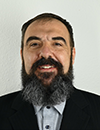

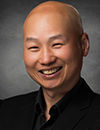


.jpg)